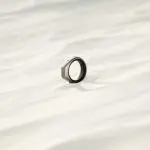![]()
OpenAI launched a feature on October 30 that lets Sora users transform their pets, toys, and everyday objects into reusable video characters, steering clear of the deepfake debates that have plagued the app since its debut last month.
Character Cameos require only a few seconds of video footage. Users upload clips from their camera roll or existing Sora videos, then give their creation a name and personality description. These digital avatars can then appear in any future artificial intelligence (AI)-generated video by simply tagging them in prompts.
The feature expands beyond Sora’s existing self-avatar tool, which requires facial scans of real people. By focusing on animals and inanimate objects instead, OpenAI sidesteps user hesitancy around personal likeness technology. Most people, in general, would never share their own likeness but would happily offer up their pet, Business Insider notes.
Sam Altman, OpenAI’s CEO, previously explained why video generates stronger reactions than images when it comes to intellectual property concerns.
“If you make a funny image of someone versus a real video, the video feels much more real and lifelike, and there’s a stronger emotional resonance,” he told tech analyst Ben Thompson.
Each character gets customizable privacy settings separate from personal likeness permissions. Creators can keep characters private, share with approved users or mutual followers, or make them available to everyone on the platform. There’s already a Halloween-themed starter pack featuring Dracula, Frankenstein, a ghost, a witch, and a pumpkin-headed character included to get started.
The update also adds video stitching capabilities. Users can now connect multiple clips to create longer, multi-scene videos. A new leaderboard showcases the most remixed videos and most frequently used characters across the platform.
OpenAI temporarily relaxed its invitation-only requirement to encourage adoption. Users in the United States, Canada, Japan, and Korea can now sign up without an invite code for a limited time. The app expanded to Thailand, Taiwan, and Vietnam as well.
It currently proves complicated for OpenAI. Celebrity video platform Cameo filed a trademark infringement lawsuit days before the feature launched, challenging the company’s use of the word “cameo.” OpenAI disagreed “that anyone can claim exclusive ownership over the word ‘cameo.'”
Despite legal headwinds, Sora has proven popular, crossing one million downloads faster than ChatGPT did, according to OpenAI.
Early user testing reveals inconsistent results that often require multiple prompt attempts. The copyright filters sometimes block even simple doodles that resemble people, according to TechRadar’s hands-on review.






















